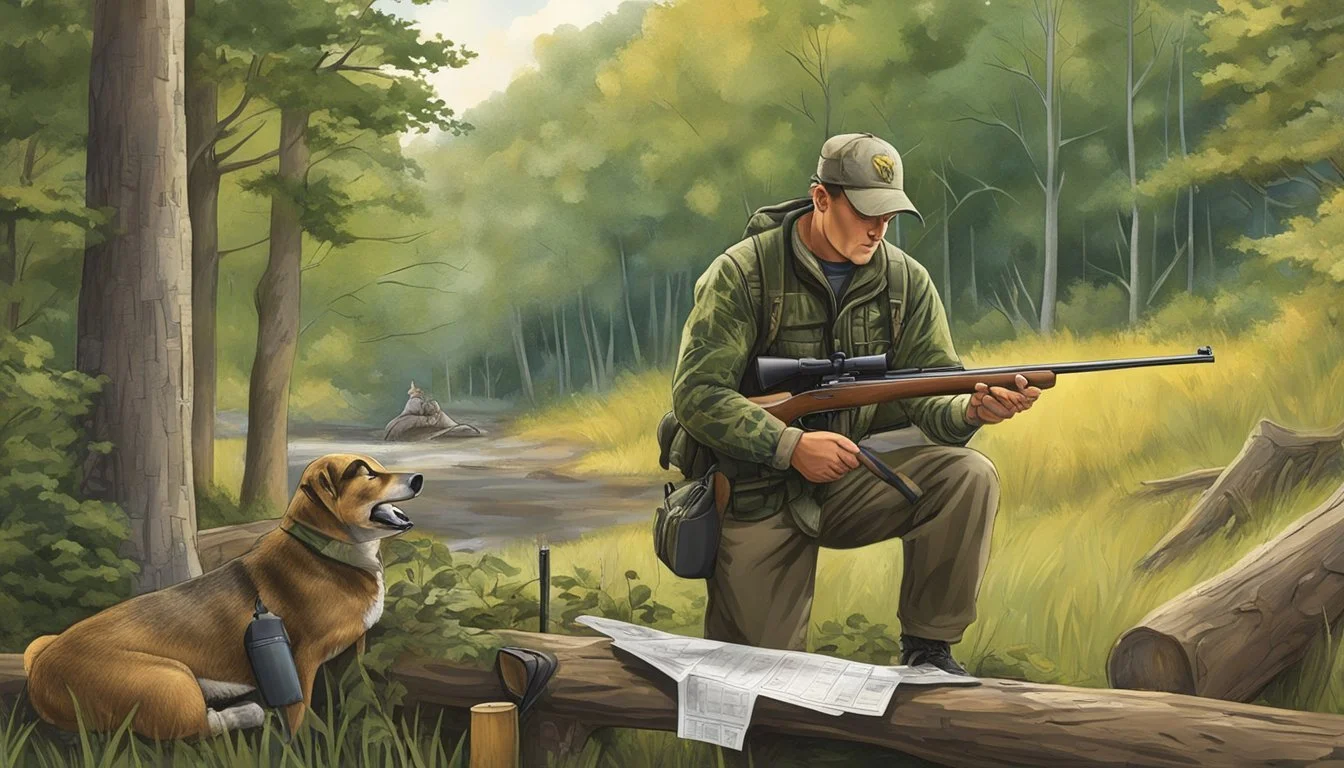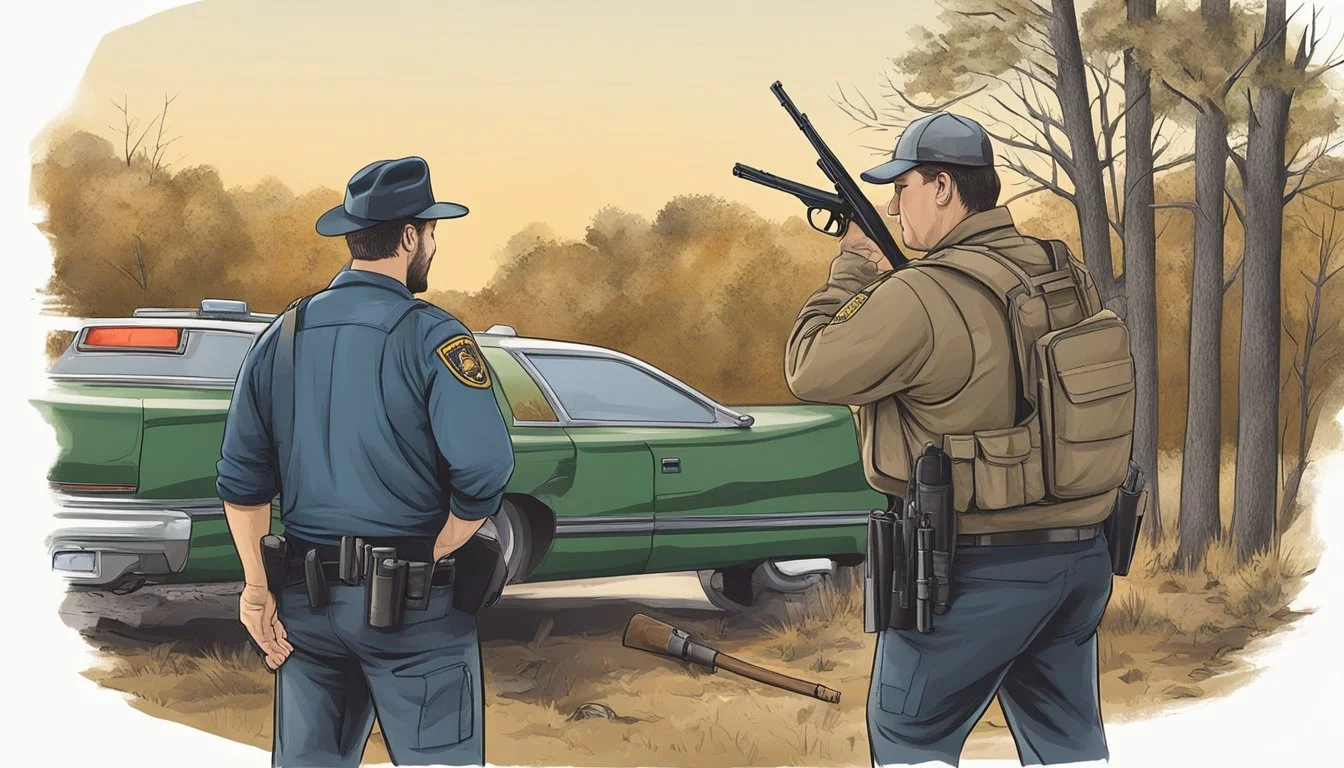Gun Laws in Connecticut for Hunters
A Comprehensive Guide
Hunters in Connecticut navigate a framework of gun regulations that ensure safe and responsible firearm use throughout the state. These laws balance individual rights with public safety concerns, affecting how hunters acquire, possess, carry, and use firearms. Recent amendments to these regulations reflect ongoing efforts to address the evolving landscape of gun ownership and its intersection with hunting traditions.
Understanding Connecticut's specific gun laws is crucial for hunters to remain in compliance while engaging in their sport. This includes awareness of licensing requirements, restrictions on types of firearms permissible for hunting, areas designated for hunting activities, and the timeframes within which hunters may carry and use their firearms. Gun laws in Connecticut are designed to clarify these parameters, maintaining an environment respectful of both legal hunting practices and broader community safety.
Connecticut's Gun Laws Overview
Connecticut's gun regulations set forth specific categories for firearms and have rigorous processes for acquiring them, which include various permits and background checks.
Categories of Firearms
In Connecticut, firearms are classified into different categories for regulatory purposes:
Handguns include pistols and revolvers.
Long Guns refer to rifles and shotguns.
Assault Weapons are identified by certain named features and are banned.
Machine Guns have their own set of regulations.
Processes for Acquiring Firearms
The process to purchase and possess firearms in Connecticut involves several steps:
Individuals must obtain the appropriate permits or certificates.
Assault weapons are subject to an outright ban, with exceptions for weapons purchased before the ban.
The sale or transfer of firearms mandates compliance with strict state guidelines.
Permits, Certificates, and Background Checks
Permit and certificate requirements in Connecticut include:
Pistol Permit: Required to purchase a handgun.
Eligibility Certificate: Needed for both handgun and long gun purchases.
Background Check: Mandatory national criminal history records check prior to the issuance of permits and certificates.
Training: Applicants for firearm permits must complete a safety course.
The state also mandates safe storage practices through the use of gun locks or other gun locking devices. Restrictions apply to individuals with restraining or protective orders, serious juvenile offenses, mental diseases or defects, or who are repeat gun offenders.
Hunting Requirements and Restrictions in Connecticut
In Connecticut, hunters are expected to adhere to stringent licensing requirements and abide by specific hunting regulations. They must be cognizant of the approved weapons for hunting, comply with established season dates, and complete necessary hunter education and training.
Hunting License and Endorsements
All hunters in Connecticut are required to obtain a valid hunting license. Junior hunters, aged 12 to 15, must be accompanied by a licensed adult hunter. Bowhunters targeting deer or turkey on private property are mandated to possess an archery permit in conjunction with their hunting license. Hunting of migratory birds such as waterfowl necessitates a Harvest Information Program (HIP) endorsement alongside state and federal stamps.
Standard Hunting License: For residents and non-residents.
Archery Permit: Mandatory for bowhunting.
HIP Endorsement: Required for migratory bird hunting.
Weapons Approved for Hunting
Legal firearms and legal bows must conform to state regulations. The use of muzzleloaders is permitted, provided hunters follow the relevant guidelines. For all firearms including rifles and shotguns, a valid pistol permit is required. Hunters are obliged to adhere to gun storage laws to ensure safety, particularly when firearms are not in use.
Firearms: Rifles, shotguns, and pistols with the proper permit.
Bows: Recurve, compound, or crossbow as per regulations.
Muzzleloaders: Allowed during designated seasons.
Hunting Season Regulations
Season dates for hunting in Connecticut are set to manage wildlife populations sustainably. Hunters should note that fluorescent orange clothing requirements are in place for visibility and safety. Hunting regulations also include restrictions on hunting hours and the prohibition of hunting on Sundays, with the exception of private shooting preserves and archery deer hunting on private land.
Season Dates: Specifically outlined for various game.
Fluorescent Orange: Required for particular hunting activities.
Hunter Education and Training
A comprehensive safety course is obligatory for first-time hunters to ensure they comprehend Connecticut's hunting laws and practices. This education is crucial for promoting ethical hunting and awareness of the responsibilities tied to hunting on private property and public lands. Trapping also demands its own set of education and permits.
Safety Course: Mandatory for new hunters.
Trapping Education: Separate courses for those interested in trapping.
Carrying and Transporting Firearms in Connecticut
In Connecticut, the rules for carrying and transporting firearms are clear and specific, designed to maintain safety for individuals and the public. Understanding these regulations is crucial for anyone who wishes to carry or transport firearms within the state.
Open and Concealed Carry Laws
Connecticut requires any individual who intends to carry a handgun, either openly or concealed, to obtain a pistol permit. Even with this permit, open carry of firearms is banned as of legislation signed in 2023. Holders of a valid pistol permit are authorized to carry handguns concealed. The permit issuance is overseen by the Department of Emergency Services and Public Protection, and local police departments play a role in the application process.
Transportation Regulations
When transporting firearms in a vehicle in Connecticut, the following rules apply:
Handguns: Must have a valid Connecticut pistol permit to carry pistols or revolvers in a vehicle.
Long Guns: Loaded long guns, such as rifles and shotguns, are prohibited in a vehicle.
Ammunition: Carrying ammunition larger than .22 caliber rimfire is not allowed on state-owned land.
These regulations are strictly enforced and apply to all gun owners, with peace officers being an exception during the course of their duties.
Carrying on Private Property and Public Spaces
Carrying firearms in Connecticut is subject to limitations in both private properties and public spaces. On private property, landowners have the right to impose their regulations regarding firearms on their premises. In public spaces, despite the ban on open carry, permit holders can carry concealed with certain restrictions. Use of firearms on these properties must align with state laws, including the prohibitions and allowances for gun offenders, and the rules surrounding body armor.
Additional Connecticut Firearms Regulations
Connecticut has specific laws regarding the use of ammunition, the storage of firearms, and the reporting of lost or stolen firearms. It's vital for gun owners to familiarize themselves with these regulations to ensure legal compliance.
Ammunition Restrictions and Requirements
In Connecticut, an ammunition certificate is required to purchase ammunition and magazines. This certification helps ensure that individuals buying ammunition have passed a background check and are authorized to own a firearm. Additionally, there are restrictions on the types of ammunition that can be used for hunting, aiming to promote wildlife conservation and ensure hunter safety.
Firearms Storage and Safety
Proper gun storage is essential for firearm owners in Connecticut. The law mandates that firearms, especially when not in use, must be securely stored in a safe or with a gun lock. These measures are to prevent unauthorized access or use. In households with minors under the age of 18, it is particularly noteworthy that gun owners are legally obligated to prevent access to handguns through secure storage.
Reporting Lost or Stolen Firearms
The reporting of lost or stolen firearms is a critical component of Connecticut gun laws. Owners must report the loss or theft of a firearm to the local police department within a specified timeframe. This policy aids in the prevention of illegal firearms circulation and helps law enforcement track missing weapons that could be involved in criminal activities.
Legal Enforcement and Penalties
In Connecticut, enforcement of gun laws and the administration of penalties for violations are handled with precision and seriousness. The state ensures that violations of these regulations are met with defined penalties and law enforcement agencies are clear about their roles in upholding the law.
Penalties for Firearms Violations
Violations of Connecticut’s firearm laws carry various penalties, which can range from fines to imprisonment, depending on the gravity of the offense. For instance, possession of a firearm without proper licensing or carrying a banned assault weapon may result in significant legal consequences, including:
Minor offenses, like failing to carry a firearm permit, might lead to fines.
Serious violations, such as the illegal sale of firearms, can result in felony charges with substantial prison time.
Repeat offenders or those committing gun offenses with aggravating factors face even harsher penalties.
Roles of Local and State Police
The enforcement of gun laws in Connecticut is primarily the joint responsibility of local police departments and the state police, under the oversight of the Commissioner of Emergency Services and Public Protection. They operate in the following ways:
Local police departments are often the first to respond to incidents involving firearms and carry out investigations on potential violations.
State police provide additional support and expertise, especially in complex cases.
They collaborate with other state and federal agencies to ensure a comprehensive approach to gun law enforcement.
Dealing with Gun Offenders
When dealing with gun offenders, Connecticut's legal system emphasizes a strict adherence to the law and a no-tolerance stance for violations. The process includes:
Immediate arrest and detainment of individuals found in breach of gun laws.
A thorough investigation conducted by the appropriate law enforcement agency to determine the extent of violations.
Coordination between the state's attorney's office and law enforcement to ensure that charges align with the severity of the offense.
In all cases, the rights of the accused are protected under the law, and due process is followed meticulously to guarantee a fair and just legal proceeding.






